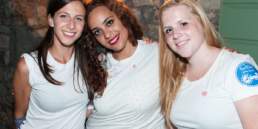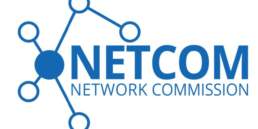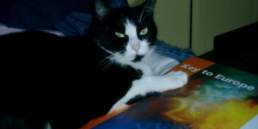Brian Brands, student of Supply Chain Management in Tilburg, discovered AEGEE two years ago. After more than a year in the board of AEGEE-Tilburg, the 26-year old is ready to take a step further and to contribute to the development of locals from the Netcom perspective. Check below his interview!
Erika Bettin: Can you please introduce yourself, your life in and out AEGEE, your passions?
Bran Brands: I am Brian, 26 years old and AEGEE member for two years. I am doing my masters in Supply Chain Management at Tilburg University! In AEGEE I like to discover as many cultures and cities as possible. Moreover, I think it is important to participate in the more serious parts of AEGEE as workshops and training events. Outside of AEGEE, I love to play and watch football. Moreover, I sometimes do obstacle runs which are exhausting, but very satisfying to finish!
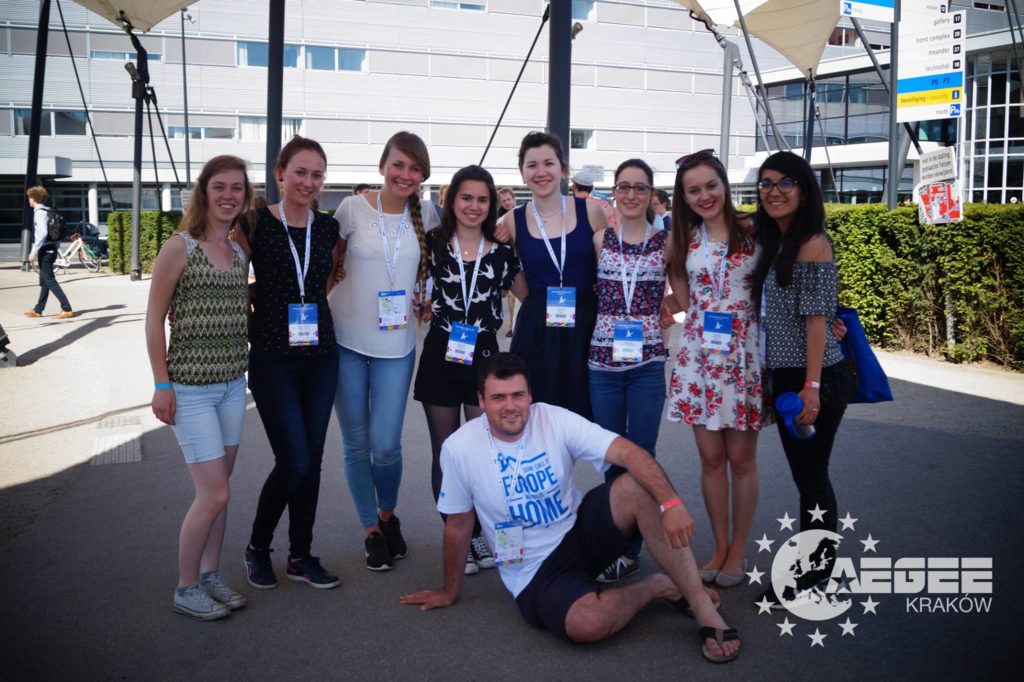
Why do you think that the Network Commission is the right place for you?
I consider Network Commission as a logical step in my development in AEGEE. In the past one year and a half, I have been a board member of AEGEE-Tilburg and with this experience I know our area very well. I am very familiar with the antenna criteria as we have to fulfill these as a local. Lastly, I am very motivated to contribute to AEGEE in Europe and the Network Commission is a perfect place to achieve much more than in the local board.
Many candidates, especially those for Comité Directeur, mentioned in their program that they want to bring the thematic part of the association closer to the locals, but yet you didn’t mention in yours anything related to that. What are your plans to do push locals a bit to organise local activities related to the Action Agenda and Strategic Plan?
First of all, I want to point out that it is never good to push locals to organise specific activities. When I will be elected as Network Commissioner, I would provide the information of ACT and the Working Groups to the locals as a suggestion for activities and events. During the contact with the locals in my area, it will definitely come to the table. My experiences as board member are positive when it comes to a collaboration with the Working Groups. However, it is the task of the Working Groups to create relevant content, that is interesting for locals to provide to their members.
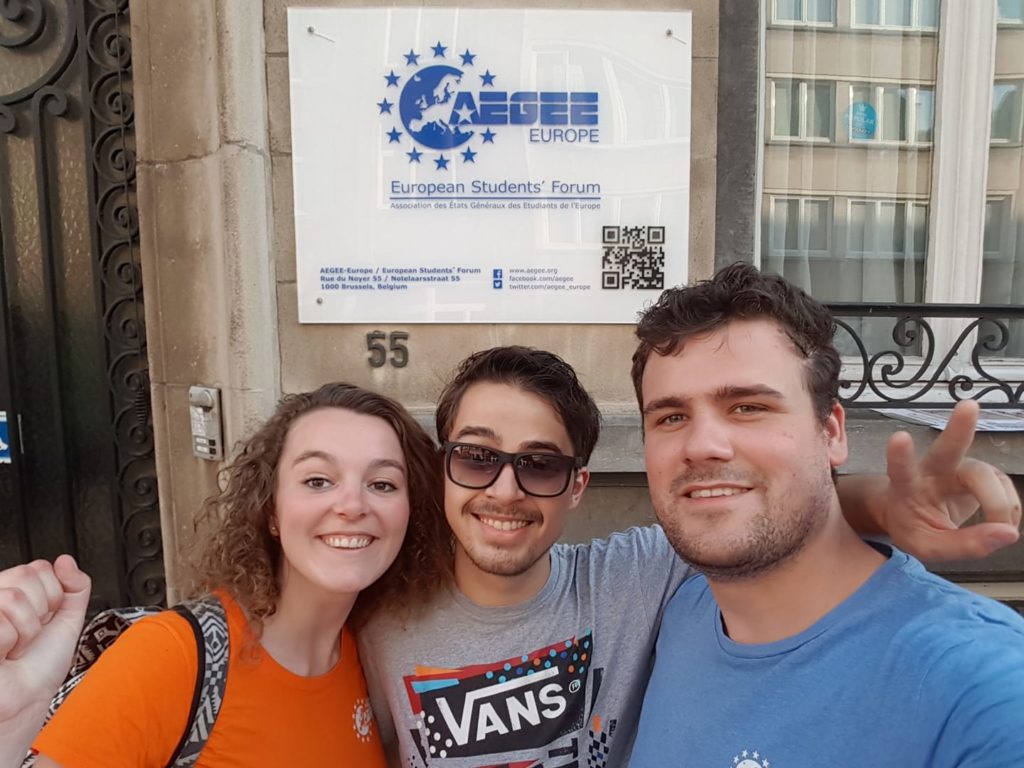
What do you think about the antenna criteria proposal proposed by the CD?
I think it is good that there would be a change in the antenna criteria, because it can save a lot of time for the local boards, AEGEE-Europe and the Network Commission. But, in the prytanium we should really discuss what sections are important and which sections can be omitted. I believe that there are now some safety measures, like the financial report and yearly board elections, that are crucial in the stability of the local. Removing those criteria could cause security and democracy issues, for which AEGEE normally is fighting for to prevent.
On which project would you like to work on as a Network Commissioner?
I would like to continue the Internal Education project, as I think there is still so much room for improvement in the educational aspects of AEGEE. At the moment, there is not really a database for sessions and the information of the Working Groups is scattered or lost after each replacement of a Working Group. Moreover, I think it is important to keep reviewing the work of the Network Commission in the Netcom review project. The AEGEE network is changing continuously and it is crucial to follow the trends and to keep evaluating and adapting.
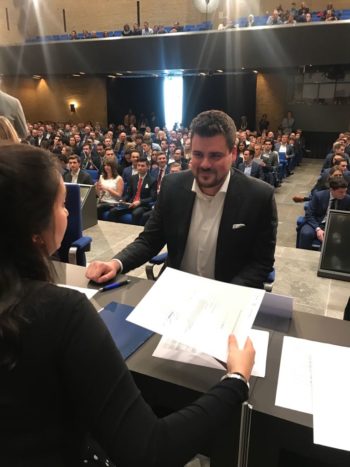 You said that you want to explore the possibility of founding new locals. Considering the actual Network distribution, which area would you like to take?
You said that you want to explore the possibility of founding new locals. Considering the actual Network distribution, which area would you like to take?
I assume to be the responsible of the Dutch locals, as currently the only Dutch speaking Netcom candidate. This area will probably be supplemented with Belgian, English, German locals or contacts. Depending on the other candidates elected, we have to work together to make a balanced Network distribution. In any case, I am happy to work together with every local according to the needs of the Network.
Connected to this, what can be a city with potential in the area? Why? And, what would be your steps to found the local?
If we look at the Netherlands, Rotterdam has a high potential to become an antenna again, since they disappeared years ago. With more than 28,000 university students, there should be enough room to organise information sessions about AEGEE and some typical AEGEE events. Of course I cannot do this alone, but together with volunteers from other locals we can really make people enthusiastic about AEGEE in that city. The road to becoming a Contact takes longer than a few days. Therefore, a line of support and cooperation should be maintained.
You want to create a sort of one-on-one support system between strong locals and weaker ones. How would you assess if a local is strong or less strong and how would you pair them up? What will be your involvement in the project?
How strong a local is can be assessed by the number of activities it organises and the amount of people attending. Moreover, the amount of members and active members is a good indicator of the strength. Pairing up can be based on the willingness of a local to help, the geographical distance and the general match between the two locals. Sometimes, this is already a natural connection. My involvement in the project would be the link between the locals and coaching them in their particular needs.
What is the Montopinto Trilanda initiative and what did you learn by attending it?
The Montopinto Trilanda initiative started in October in Aachen and is an assembly of locals in the border regions of the Netherlands, Belgium and Germany. The initiative originated in the idea that we could learn from each other in a borderless Europe. Aachen for example is a very strong local, with a lot of exciting activities. Every topic that you discuss during these meetings gives a lot of extra knowledge on what works in other locals and what are their best practices.
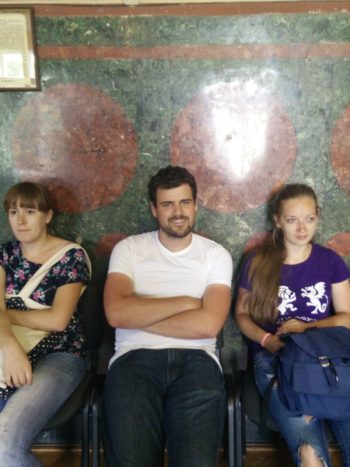
You mentioned that you want to attend an assembly of locals outside your area. Nedertop is a specific tradition of Dutch Locals and it has very few correspondence within the Network. Do you already have an idea where you would like to go?
Yes, the Nedertop is a specific tradition of Dutch locals, but I believe that it should be an example for the rest of the Network. However, not every local wants to travel across the country. I do understand that. Therefore, an option is to visit an RTC for example. I don’t have a preference for a region, because every region has something special and interesting.
Written by Erika Bettin, AEGEE-Verona
You can read Brian’s complete candidature here.

